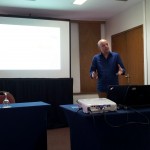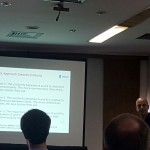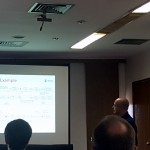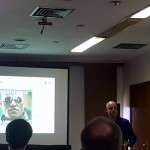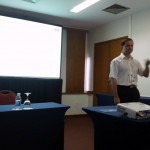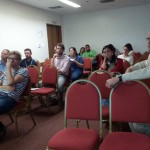The International Workshop on Process Querying 2016 (PQ 2016) is the first edition of a workshop for researchers and practitioners in the area of process querying of large process model collections to be held in conjunction with BPM 2016. It aims to provide a high quality forum for researchers and practitioners to exchange research findings and ideas on process querying technologies and practices. Process querying addresses the problem of automatically managing individual process models and collections thereof. Process querying research spans a range of topics from theoretical studies of algorithms and the limits of computability of process querying techniques to practical issues of implementing process querying technologies in software. Process querying reuses existing methods and contributes new results in research areas of business process management, analysis and design of information systems, model checking, formal methods, process mining, conformance checking, process model repair, information retrieval, big data, formal languages, programming languages, as well as other disciplines that study techniques that can be used to address the problem of information overload in process models and/or modern process model repositories.
Follow us on twitter. This call for papers can be downloaded in the pdf format from here.
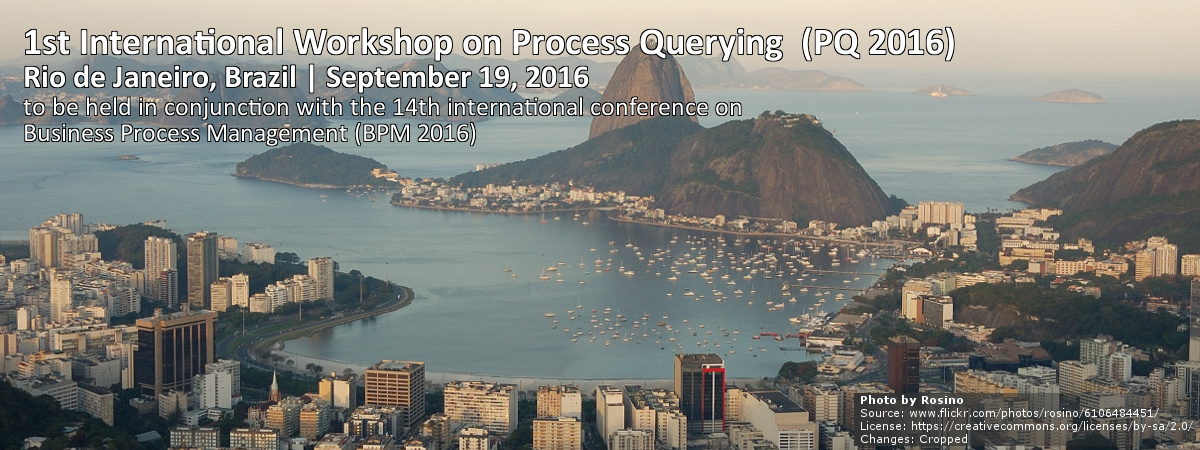
PROGRAM
PQ 2016 will take place on September 19, 2016, at the Othon Palace Rio Hotel, Rio de Janeiro, Brazil.
| Session 1 – Tutorial (Room 3). Session Chair: Claudio Di Ciccio | |
|---|---|
| 14:00-15:30 | Process Querying with Uncertainty [presentation slides] Avigdor Gal |
| Session 2 – Main Track (Room 3). Session Chair: Matthias Weidlich | |
| 16:00-16:30 | Process Model Search using Latent Semantic Analysis [presentation slides] Andreas Schoknecht, Nicolai Fischer, and Andreas Oberweis |
| 16:30-17:00 | Everything You Always Wanted to Know About Your Process, But Did Not Know How To Ask [presentation slides] Eduardo González López de Murillas, Hajo A. Reijers, and Wil M.P. van der Aalst |
| 17:00-17:30 | A Comparative Analysis of Business Process Model Similarity Measures [presentation slides] Tom Thaler, Andreas Schoknecht, Peter Fettke, Andreas Oberweis, and Ralf Laue |
TUTORIAL: Process Querying with Uncertainty
PHOTOS OF THE WORKSHOP DAY
WORKSHOP TOPICS
The main topics relevant to the PQ workshop include, but are not limited to:
- Behavioral and structural methods for process querying
- Imperative and declarative process querying
- Exact and approximate process querying
- Expressiveness of process querying
- Decidability and complexity of process querying
- Process query languages and notations
- Indexing for fast process querying
- Empirical evaluation and validation of process querying
- Label management in process querying
- Information retrieval methods in process querying
- Process querying of big (process) data
- Automatic management of process models, e.g., process model repair
- Automatic management of process model collections
- Event log querying
- Process performance querying
- Multi-perspective process querying, e.g., resource, data, etc.
- Process querying and rich ontology annotations
- Applications of process querying, e.g., process compliance, standardization, reuse, etc.
- Experience reports from implementations of process querying tools
- Case studies in process querying
SUBMISSION INSTRUCTIONS
Prospective authors are invited to submit papers for presentation in any of the areas listed above. The paper selection will be based upon the relevance of a paper to the main topics as well as upon its quality and potential to generate relevant discussion. Authors are requested to prepare submissions according to the format of the Lecture Notes in Business Information Processing (LNBIP) series by Springer (http://www.springer.com/computer/lncs?SGWID=0-164-6-791344-0). Submissions must be in English and must not exceed 12 pages (including figures, bibliography and appendices). Each paper should contain a short abstract, clarifying the relation of the paper with the main topics (preferably using the list of topics above), clearly state the problem being addressed, the goal of the work, the results achieved, and the relation to other work. Papers should be submitted electronically as a self-contained PDF file via the PQ 2016 submission system (https://www.easychair.org/conferences/?conf=pq2016workshop). Submissions must be original contributions that have not been published previously, nor already submitted to other conferences or journals in parallel with this workshop.
PUBLICATION
All workshop papers will be published by Springer as a post-workshop proceedings volume in the series Lecture Notes in Business Information Processing (LNBIP). These proceedings will be made available to all registered participants approximately four months after the workshop, while preliminary proceedings will be distributed during the workshop. For each accepted paper, at least one author must register for the workshop and present the paper.
KEY DATES
- Submission deadline:
27 May, 20166 June 2016 - Notification deadline:
27 June, 20164 July 2016 - Camera-ready papers deadline:
18 July, 201622 July 2016 - Workshop:
19 September, 2016
ORGANIZERS
- Artem Polyvyanyy, Queensland University of Technology
- Arthur ter Hofstede, Queensland University of Technology
PROGRAM COMMITTEE
- Ahmed Awad, Cairo University
- Hyerim Bae, Pusan University
- Joos Buijs, Eindhoven University of Technology
- Massimiliano de Leoni, Eindhoven University of Technology
- Jochen De Weerdt, Katholieke Universiteit Leuven
- Gero Decker, Signavio
- Claudio Di Ciccio, Vienna University of Economics and Business
- Remco Dijkman, Eindhoven University of Technology
- Dirk Fahland, Eindhoven University of Technology
- Luciano García-Bañuelos, University of Tartu
- David Knuplesch, Ulm University
- Matthias Kunze, Zalando
- Marcello La Rosa, Queensland University of Technology
- Henrik Leopold, VU University Amsterdam
- Jorge Munoz-Gama, Pontifical Catholic University of Chile
- Chun Ouyang, Queensland University of Technology
- Artem Polyvyanyy, Queensland University of Technology
- Stefanie Rinderle-Ma, University of Vienna
- Andreas Rogge-Solti, Vienna University of Economics and Business
- Minseok Song, Ulsan National Institute of Science and Technology
- Arthur ter Hofstede, Queensland University of Technology
- Seppe vanden Broucke, Katholieke Universiteit Leuven
- Boudewijn van Dongen, Eindhoven University of Technology
- Matthias Weidlich, Humboldt University of Berlin
Contact details
Please forward all enquires to pq2016workshop (at) easychair (dot) org.


